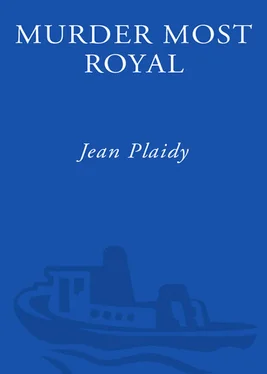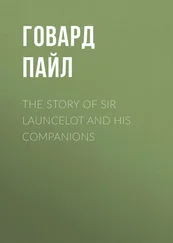Jean Plaidy - Murder Most Royal - The Story of Anne Boleyn and Catherine Howard
Здесь есть возможность читать онлайн «Jean Plaidy - Murder Most Royal - The Story of Anne Boleyn and Catherine Howard» весь текст электронной книги совершенно бесплатно (целиком полную версию без сокращений). В некоторых случаях можно слушать аудио, скачать через торрент в формате fb2 и присутствует краткое содержание. Жанр: Старинная литература, на русском языке. Описание произведения, (предисловие) а так же отзывы посетителей доступны на портале библиотеки ЛибКат.
- Название:Murder Most Royal: The Story of Anne Boleyn and Catherine Howard
- Автор:
- Жанр:
- Год:неизвестен
- ISBN:нет данных
- Рейтинг книги:3 / 5. Голосов: 1
-
Избранное:Добавить в избранное
- Отзывы:
-
Ваша оценка:
- 60
- 1
- 2
- 3
- 4
- 5
Murder Most Royal: The Story of Anne Boleyn and Catherine Howard: краткое содержание, описание и аннотация
Предлагаем к чтению аннотацию, описание, краткое содержание или предисловие (зависит от того, что написал сам автор книги «Murder Most Royal: The Story of Anne Boleyn and Catherine Howard»). Если вы не нашли необходимую информацию о книге — напишите в комментариях, мы постараемся отыскать её.
Murder Most Royal: The Story of Anne Boleyn and Catherine Howard — читать онлайн бесплатно полную книгу (весь текст) целиком
Ниже представлен текст книги, разбитый по страницам. Система сохранения места последней прочитанной страницы, позволяет с удобством читать онлайн бесплатно книгу «Murder Most Royal: The Story of Anne Boleyn and Catherine Howard», без необходимости каждый раз заново искать на чём Вы остановились. Поставьте закладку, и сможете в любой момент перейти на страницу, на которой закончили чтение.
Интервал:
Закладка:
“Why come ye not to court?
To which court?
To the King’s court
Or to Hampton Court!”
He was well hated, as only the successful man can be hated by the unsuccessful. That he had risen from humble circumstances made the hatred stronger. “ We are as good as this man!” “With his luck, there might I have gone!” So whispered the people, and the Cardinal knew of their whisperings and was grieved; for indeed many things grieved this man as he passed through London on his way to Sir Richard Wiltshire’s house in Dartford wherein he would spend the first night of his journey to the coast.
The Cardinal was brooding on the secret matter of the King’s. It was for him to smooth the way for his master, to get him what he desired at the earliest possible moment; and he who had piloted his state ship past many dangerous rocks was now dismayed. Well he could agree with His Majesty that the marriages of kings and queens depend for their success on the male issue, and what had his King and Queen to show for years of marriage but one daughter! The Cardinal’s true religion was statecraft; thus most frequently he chose to forget that as Cardinal he owed allegiance to the Church. When he had first been aware of the King’s passion for Mistress Anne Boleyn, many fetes had he given at his great houses, that the King and this lady might meet. Adultery was a sin in the eyes of Holy Church; not so in the liberal mind of Thomas Wolsey. The adultery of the King was as necessary as the jousts and tourneys he himself arranged for His Majesty’s diversion. And though he was ever ready to give the King opportunities for meeting this lady, he gave but slight thought to the amorous adventures of His Majesty. This affair seemed to him but one of many; to absorb, to offer satiety; that was inevitable. And then...the next. So when this idea of divorce had been passed to him by the King, glorious possibilities of advancing England’s interests through an advantageous marriage began to take hold of the Cardinal’s mind.
Should England decide to ally herself with France against the Emperor Charles, what better foundation for such an alliance could there be than marriage! Already he had put out feelers for Francis’s widowed sister, Marguerite of Alencon, but her brother, uncertain of Henry who still had an undivorced wife—and she none other than the aunt of the Emperor Charles himself—had dallied over negotiations, and married his sister to the King of Navarre. There was, however, Renee of France, sister to the late Queen Claude, and Wolsey’s heart glowed at the prospect of such a marriage. Had not Claude borne Francis many children? Why, therefore, should Renee not bear Henry many sons? And to make the bargain complete, why not contract the King’s daughter Mary to Francis’s son, the Duke of Orleans? Of these matters had Wolsey spoken to the King, and craftily the King appeared to consider them, and whilst considering them he was thinking of none but Anne Boleyn, so did he yearn towards her; and so had her reluctance inflamed his passion that already he was toying with the idea of throwing away Wolsey’s plans for a marriage which would be good for England; he was planning to defy his subjects’ disapproval, to throw tradition to the wind, to satisfy his desires only and marry Anne Boleyn. He knew his Chancellor; wily, crafty, diplomatic; let Wolsey consider this divorce to be a state affair, and all his genius for statecraft would go into bringing it about; let him think it was but to satisfy his master’s overwhelming desire for a humble gentlewoman of his court—who persistently and obstinately refused to become his mistress—and could Wolsey’s genius then be counted on to work as well? The King thought not; so he listened to Wolsey’s plans with feigned interest and approval, but unknown to the Cardinal, he dispatched his own secretary as messenger to the Pope, for he wished to appease his conscience regarding a certain matter which worried him a little. This was his love affair with Mary Boleyn, which he feared must create an affinity between himself and Anne, though he had determined it should be of small consequence should his secretary fail to obtain the Pope’s consent to remove the impediment.
Riding on to Dartford, the Cardinal was busily thinking. There was within him a deep apprehension, for he was aware that this matter of the divorce was to be a delicate one and one less suited to his genius, which loved best to involve itself in the intricacies of diplomacy and was perhaps less qualified to deal with petty domesticities. Of Anne Boleyn he thought little. To him the King’s affair with this foolish girl was a matter quite separate from the divorce, and unworthy of much thought. It appeared to him that Anne was a light o’ love, a younger version of her sister Mary, a comely creature much prone to giving herself airs. He smiled on her, for, while not attaching over-much importance to the King’s favorites whose influence had ever been transient, it was well not to anger them. Vaguely he remembered some affair with Percy; the Cardinal smiled faintly at that. Could it be then that the King had remained faithful so long?
He fixed his eyes on his Cardinal’s hat being borne before him, and that symbol of his power, the Great Seal of England; and his mind was busy and much disturbed, recent events having complicated the matter of divorce. He thought of the three men of consequence in Europe—Henry, Charles and Francis. Francis—even enfeebled as he was just now—had the enviable role of looker-on, sly and secret, waiting to see advantage and leap on it; Henry and Charles must take more active parts in the drama, for Henry’s wife was Charles’s aunt, and it was unlikely that Charles would stand calmly by to see Henry humiliate Spain through such a near relation. Between these two the Pope, a vacillating man, was most sorely perplexed; he dared not offend Henry; he dared not offend Charles. He had granted a divorce to Henry’s sister Margaret on the flimsiest of grounds, but that had proved simple; there was no mighty potentate to be offended by such a divorce. Henry, ranting, fuming, urgently wanting what, it seemed to him, others conspired to keep from him, was a dangerous man; and to whom should he look to gratify his whims but Wolsey? And on whom would he vent his wrath, were his desires frustrated?
This sorry situation had been vastly aggravated by a recent event in Europe; the most unexpected, horrible and sacriligious event the Cardinal could conceive, and the most disastrous to the divorce. This was the sack of Rome by the Duke of Bourbon’s forces in the name of the Empire.
Over the last few years Wolsey had juggled dexterously in Europe; and now, riding on to Dartford, he must wonder whether out of his cunning had not grown this most difficult situation. For long Wolsey had known of the discord which existed between Francis and one of the most powerful nobles of France, the mighty Duke of Bourbon. This nobleman, to safeguard his life, had fled his country, and being a very proud and high-spirited gentleman was little inclined to rest in exile all his life; indeed for years before his flight he had been in treasonable communication with the Emperor Charles, France’s hereditary enemy, and when he left his country he went to Charles with plans for making war on the French King.
Now it had occurred to Wolsey that if the Duke could be supplied secretly with money he could raise an army from his numerous supporters and thus be, as it were, a general under the King of England while none need know that the King of England had a hand in this war. Therefore would England be in secret alliance with Spain against France. Henry had felt the conception of such an idea to be sheer genius, for the weakening of France and the reconquering of that country had ever been a dream of his. A secret ambassador had been sent to Emperor Charles, and the King and Wolsey with their council laughed complacently at their own astuteness. Francis, however, discovered this and sent a secret messenger to make terms with England, with the result that Bourbon’s small army—desperate and exhausted—awaited in vain the promised help from England. Wolsey had calculated without the daring of the Duke and the laxity of the French forces, without Francis’s poor generalship which alternately hesitated and then was overbold. At Pavia the French King’s forces were beaten, and the King taken prisoner; and among his documents was found the secret treaty under the Great Seal of England. Thus was Francis a prisoner in the hands of the Emperor, and thus was English double-dealing exposed. Francis was to languish and come near to death in a Madrid prison; and Charles would not be overeager to link himself with England again. So that the master-stroke which was to have put England in the enviable position of being on the winning side—whichever it was to be—had failed.
Читать дальшеИнтервал:
Закладка:
Похожие книги на «Murder Most Royal: The Story of Anne Boleyn and Catherine Howard»
Представляем Вашему вниманию похожие книги на «Murder Most Royal: The Story of Anne Boleyn and Catherine Howard» списком для выбора. Мы отобрали схожую по названию и смыслу литературу в надежде предоставить читателям больше вариантов отыскать новые, интересные, ещё непрочитанные произведения.
Обсуждение, отзывы о книге «Murder Most Royal: The Story of Anne Boleyn and Catherine Howard» и просто собственные мнения читателей. Оставьте ваши комментарии, напишите, что Вы думаете о произведении, его смысле или главных героях. Укажите что конкретно понравилось, а что нет, и почему Вы так считаете.












